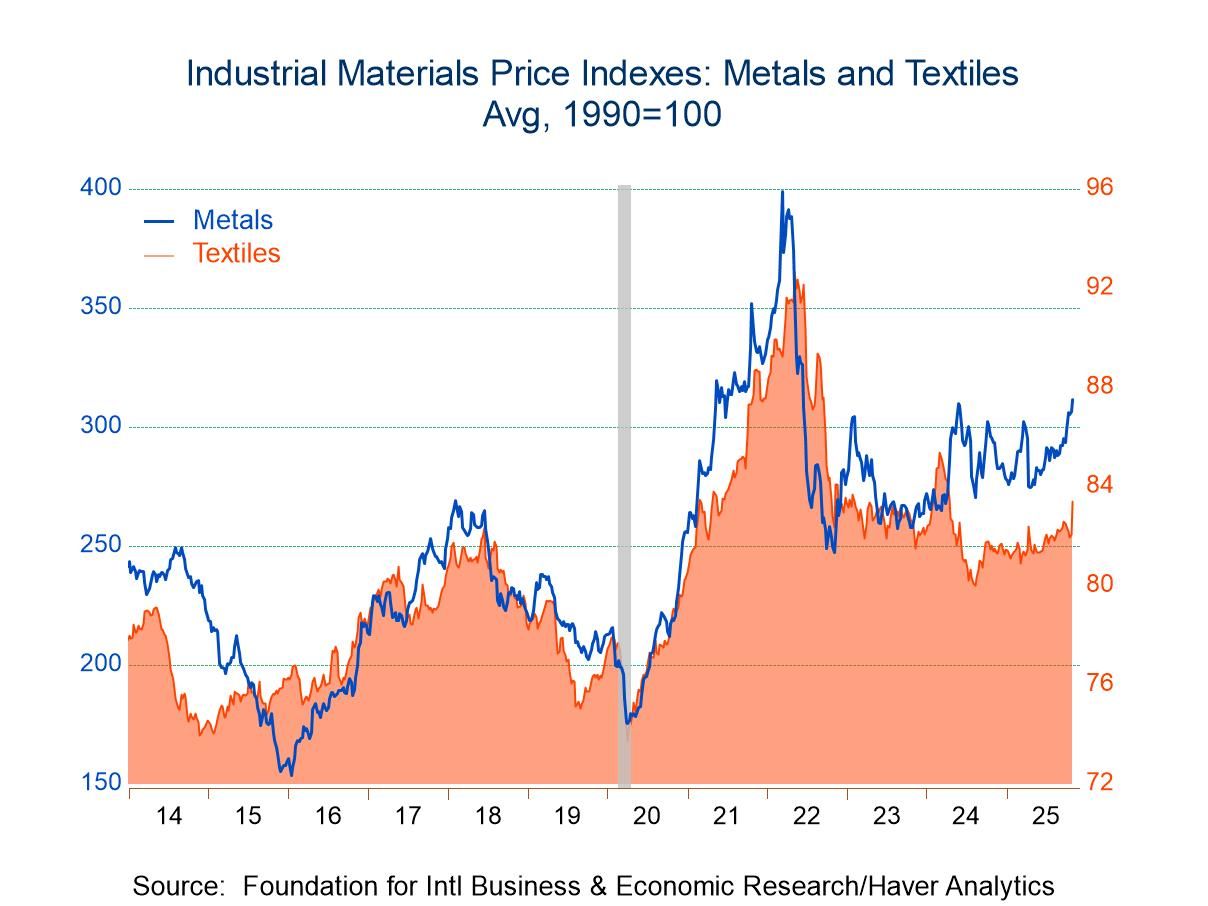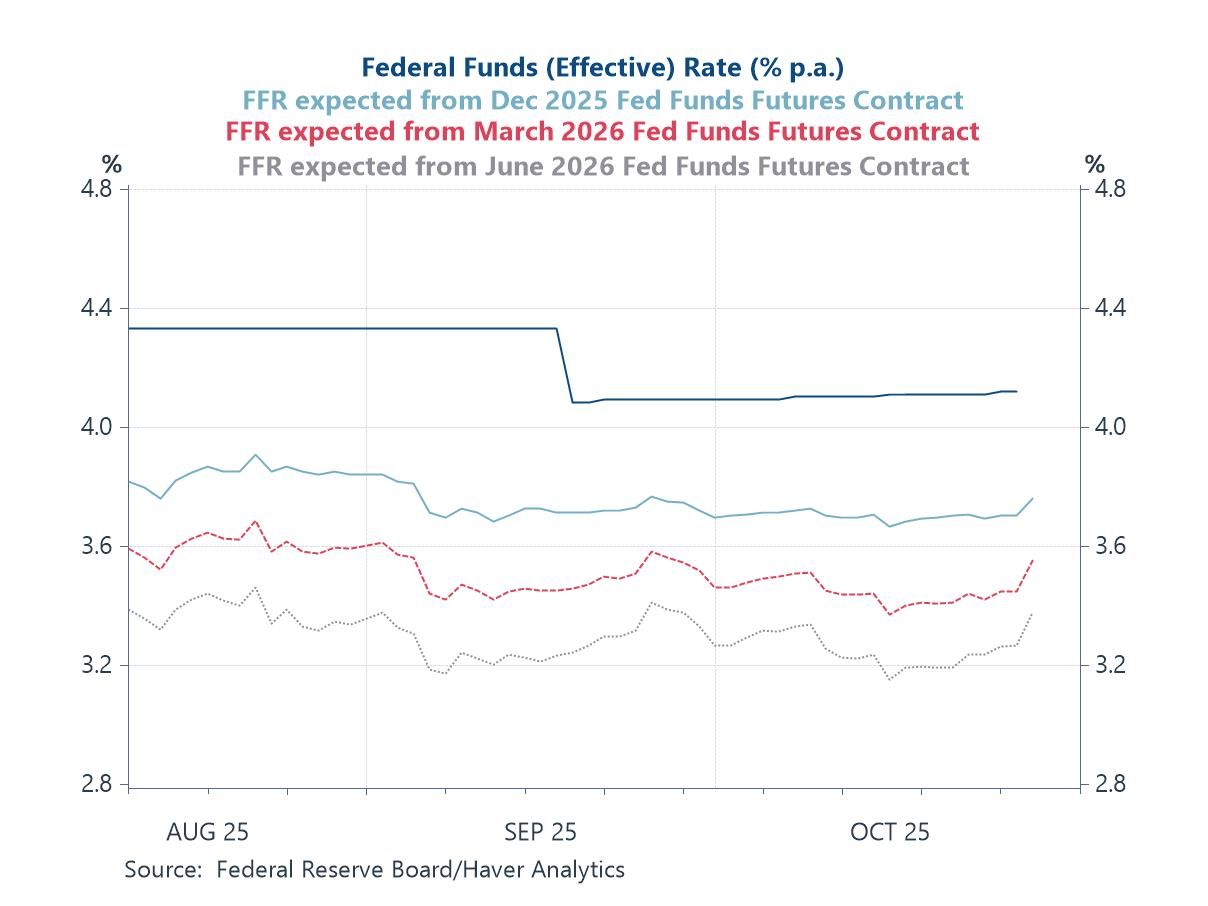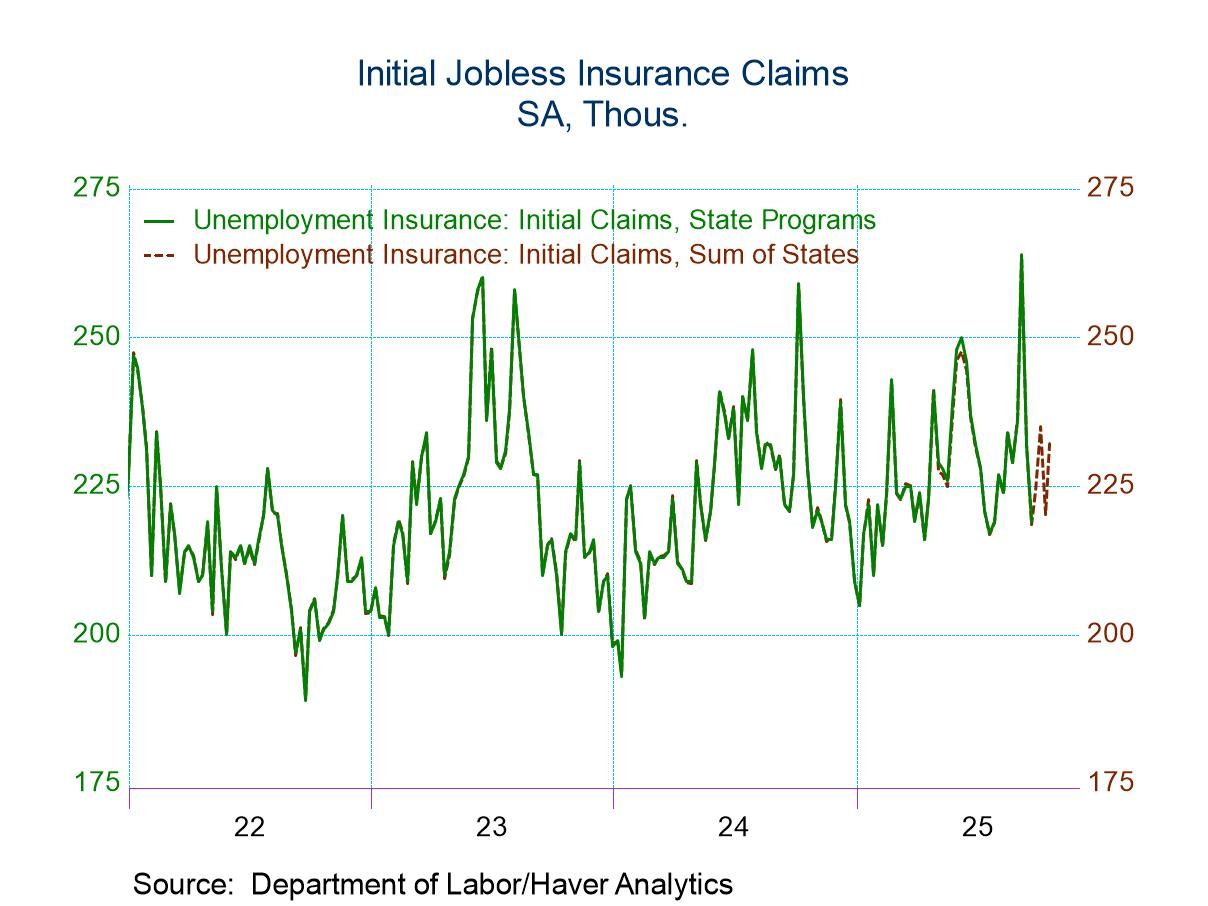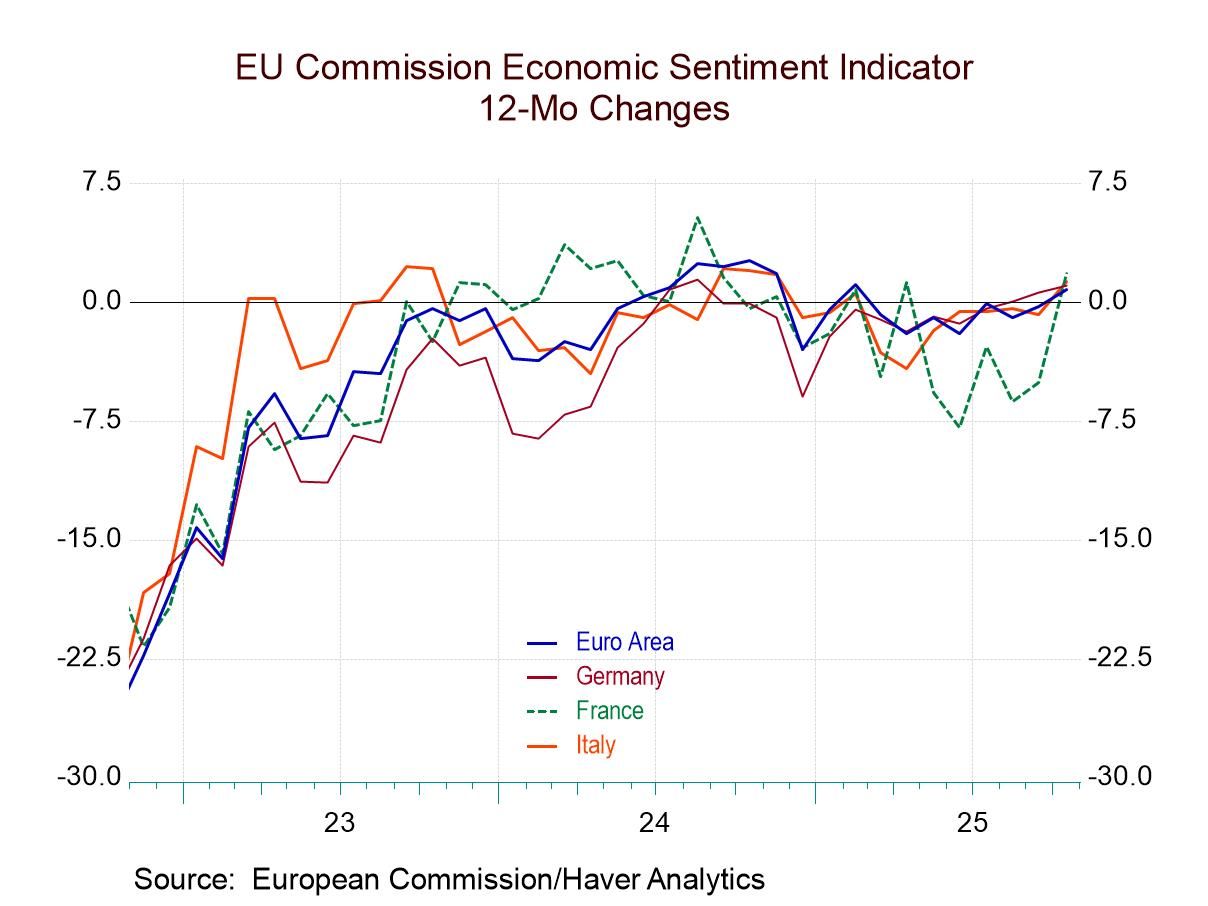 Global| Jul 03 2007
Global| Jul 03 2007EU PPI and Core Rise by 0.3% in May. Should the ECB be Worried?
Summary
The ECB, like the Fed, prefers to talk in terms of a price measure broader than the PPI. The PPI is just domestically produced goods and therefore omit import prices and services prices - services are a big missing piece in any [...]
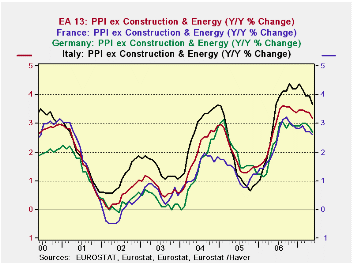
The ECB, like the Fed, prefers to talk in terms of a price measure broader than the PPI. The PPI is just domestically produced goods and therefore omit import prices and services prices - services are a big missing piece in any economy. But since it is goods inflation that has been lowest and services inflation that has been more stubborn we do learn something by looking at goods prices alone.
The table below shows PPI on several different horizons. While the headline PPI is lower in March compared to April, the 3-month pace has not decelerated from the 6- month pace and ex-energy PPI has picked up and is accelerating compared to its Yr/Yr pace as well.
Producer prices just seem to have all sorts of stubbornness to them when it comes to looking for trends with a pace that is clearly falling.
The bottom half of the table provides country level data and the Yr/Yr patterns for those appear in the chart on the left.
The ex-energy PPIs across key EU states show some disturbing patterns. Since end 2001 there have been three cycles of bulging PPI prices on this measure. Each time inflation went up, it made a new higher peak and each time it came down it made a new higher trough. This is creeping inflation pressure.
This is the sort of pattern in prices that makes central bankers lose sleep.
Is the new pattern turning lower? Well, yes but at a very stubborn rate and if you look at the pattern it looks more flat than round at the peak in recent months and is thereby begging the question of how much inflation will fall off. Clearly inflation is not falling in the post peak period as easily as it did in other episodes when it ultimately did not fall far enough.
| M/M | SAAR | |||||
| Ezone-13 | May-07 | Apr-07 | 3-Mo | 6-MO | Yr/Yr | Y/Y Yr Ago |
| Total excl Construction | 0.3% | 0.4% | 4.3% | 3.3% | 2.3% | 6.0% |
| Excl Energy | 0.3% | 0.4% | 3.8% | 3.6% | 3.2% | 2.7% |
| Capital Goods | 0.1% | 0.1% | 1.2% | 2.1% | 2.0% | 1.2% |
| Consumer Goods | 0.2% | 0.3% | 2.1% | 2.3% | 1.7% | 1.7% |
| Intermediate & Capital Goods | 0.3% | 0.5% | 4.8% | 4.5% | 4.1% | 3.2% |
| Energy | 0.5% | 0.3% | 6.3% | 2.4% | -0.5% | 18.6% |
| MFG | 0.4% | 0.7% | 6.7% | 4.6% | 2.5% | 4.2% |
| Germany | 0.3% | 0.1% | 2.7% | 1.9% | 1.9% | 6.2% |
| Total excl Energy | 0.2% | 0.5% | 3.3% | 2.8% | 2.7% | 2.3% |
| France | 0.0% | 0.4% | 2.5% | 2.2% | 1.4% | 4.2% |
| Total excl Energy | 0.2% | 0.3% | 2.2% | 2.4% | 2.6% | 2.0% |
| Italy | 0.4% | 0.5% | 5.5% | 3.9% | 3.0% | 6.6% |
| Total excl Energy | 0.3% | 0.4% | 4.2% | 4.3% | 3.7% | 2.9% |
| UK | -0.3% | -2.0% | -8.5% | -6.9% | -0.2% | 11.3% |
| Total excl Energy | 0.2% | 0.2% | 3.3% | 3.6% | 3.3% | 2.6% |
| E-zone 13 Harmonized PPI excluding Construction | ||||||
| The EA 13 countries are Austria, Belgium, Finland, France, Germany, | ||||||
| Greece, Ireland, Italy, Luxembourg, the Netherlands, Portugal, Slovenia | ||||||
Robert Brusca
AuthorMore in Author Profile »Robert A. Brusca is Chief Economist of Fact and Opinion Economics, a consulting firm he founded in Manhattan. He has been an economist on Wall Street for over 25 years. He has visited central banking and large institutional clients in over 30 countries in his career as an economist. Mr. Brusca was a Divisional Research Chief at the Federal Reserve Bank of NY (Chief of the International Financial markets Division), a Fed Watcher at Irving Trust and Chief Economist at Nikko Securities International. He is widely quoted and appears in various media. Mr. Brusca holds an MA and Ph.D. in economics from Michigan State University and a BA in Economics from the University of Michigan. His research pursues his strong interests in non aligned policy economics as well as international economics. FAO Economics’ research targets investors to assist them in making better investment decisions in stocks, bonds and in a variety of international assets. The company does not manage money and has no conflicts in giving economic advice.



